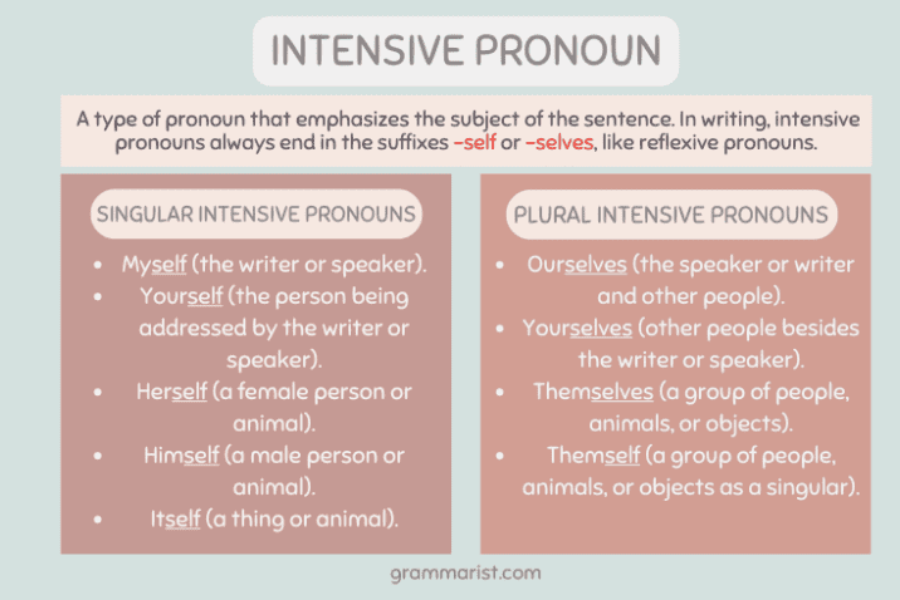Language is a living, evolving entity that reflects the social and cultural shifts of society. One of the most noticeable developments in modern language is the rise of “exotic pronouns” — a term used to describe pronouns outside of the traditional binary understanding of gender. These non-traditional pronouns have gained increasing visibility and importance in recent years, particularly as conversations around gender identity become more inclusive and nuanced.
In this blog post, we will delve deep into the topic of exotic pronouns, exploring their origins, significance, and the growing need for their use in an evolving society. We will also highlight the importance of respecting people’s gender identities and pronouns, while addressing common misconceptions along the way.
What Are Exotic Pronouns?
Exotic pronouns are pronouns that fall outside the traditional “he/she” binary. While “he” and “she” have long been used to refer to individuals based on their gender, exotic pronouns challenge this binary system. These pronouns are often created by individuals to reflect their gender identity, and they may not necessarily align with conventional male or female categories.
The term “exotic pronouns” is not universally accepted, as it can sometimes carry a connotation of othering or marginalizing these terms. Many people who use these pronouns prefer the term “gender-neutral” or “non-binary” pronouns, as it helps shift the conversation toward inclusivity, rather than alienation.
Some examples of exotic pronouns include:
- They/Them: The most commonly recognized gender-neutral pronouns. Although “they” has historically been a plural pronoun, it has been widely adopted as a singular, gender-neutral term.
- Ze/Hir: These pronouns are sometimes used by individuals who don’t identify with the traditional male or female gender roles. “Ze” is a substitute for “he” or “she,” while “hir” is a substitute for “him” or “her.”
- Xe/Xem: Another gender-neutral set of pronouns that is gaining recognition.
- E/Em: A simpler variation of gender-neutral pronouns used by some individuals.
- Faer/Faers: Pronouns used by some non-binary individuals.
The exact pronunciation and spelling of these exotic pronouns can vary, and individuals may even create their own. It’s important to note that the choice of pronouns is deeply personal and rooted in an individual’s identity.
Why Do Exotic Pronouns Matter?
Exotic pronouns matter because they serve to validate and affirm the identities of people who fall outside the traditional gender binary. In the past, society largely adhered to the belief that there were only two genders: male and female. However, as our understanding of gender continues to grow, it is becoming increasingly clear that gender is not a fixed or binary concept.
The importance of using the correct pronouns for someone cannot be overstated. Misusing someone’s pronouns — whether intentionally or accidentally — can cause emotional harm and contribute to feelings of alienation. On the other hand, using the correct pronouns shows respect for someone’s identity, creating a more inclusive and supportive environment.
In many ways, the conversation about exotic pronouns is about more than just language. It’s about recognizing the diversity of human experiences and ensuring that all people feel seen, heard, and respected. By using someone’s preferred pronouns, we send a powerful message that they matter and that their identity is valid.
A Brief History of Pronouns and Gender Identity
Pronouns have existed in many languages for centuries, but the way they’ve been used has evolved significantly. In English, the use of gendered pronouns dates back to Old English, which had distinct masculine, feminine, and neuter forms of pronouns. However, the modern understanding of pronouns and their relationship to gender identity is relatively new.
The rise of gender-neutral and non-binary pronouns can be traced back to the mid-20th century when feminist and LGBTQ+ movements began advocating for greater recognition of gender diversity. As these movements gained traction, language began to adapt to include more options for gender expression.
In 1971, linguist and professor of psychology, Dr. John Money, published a paper advocating for the use of gender-neutral pronouns in order to support the acknowledgment of intersex and non-binary individuals. Despite these early efforts, it wasn’t until the 1990s and early 2000s that more widespread conversations around non-binary pronouns started to take root.
In 2015, the rise of the term “they” as a singular, gender-neutral pronoun reached new heights when major dictionaries like Merriam-Webster added the word to their definitions. This marked a turning point in the normalization of gender-neutral pronouns in mainstream culture.
Since then, the conversation around pronouns has continued to evolve, with more and more people openly embracing the use of exotic or non-traditional pronouns. This shift is reflective of broader changes in how society views gender, sexuality, and identity.
Common Misconceptions About Exotic Pronouns
As with any emerging social trend, the use of exotic pronouns has generated its share of confusion and misunderstanding. Let’s take a look at some of the most common misconceptions and address them head-on:
1. “Exotic pronouns are just a trend.” While the idea of using non-binary pronouns may seem like a new or temporary trend to some, it’s important to recognize that these pronouns reflect real, lived experiences. For many people, using non-binary pronouns is a matter of personal identity, not a passing fad.
2. “It’s too hard to remember all the different pronouns.” Learning to use new pronouns can take time, but it’s not an impossible task. Just as we learn to respect someone’s name, we can also learn to respect their pronouns. Using the correct pronouns is a simple yet powerful act of respect and affirmation.
3. “Only a few people use exotic pronouns.” While it may seem like non-binary pronouns are only used by a small subset of people, the reality is that many individuals who identify outside the gender binary prefer using these pronouns. With growing awareness and understanding, more people are feeling empowered to express their gender identity authentically.
4. “Using someone’s correct pronouns is optional.” Respecting someone’s pronouns is not just about being polite — it’s about acknowledging their humanity and individuality. Using the correct pronouns is essential to creating a supportive and inclusive environment for everyone.
5. “Exotic pronouns are unnecessary; they’re confusing.” The idea that non-binary pronouns are confusing often comes from a lack of exposure or understanding. In reality, learning about different pronouns helps to create a more inclusive society where everyone’s identity is honored. It’s essential to recognize that language can and should evolve to reflect the diverse ways people experience the world.
How to Use Exotic Pronouns Respectfully
The most important thing to remember when using exotic pronouns is that respect and openness are key. Here are a few tips for using exotic pronouns in a thoughtful and respectful manner:
1. Ask and Listen: When meeting someone who uses exotic pronouns, simply ask what pronouns they prefer. Respecting their answer is crucial. If you’re unsure, it’s perfectly acceptable to say, “What pronouns do you use?”
2. Correct Yourself if You Make a Mistake: If you accidentally use the wrong pronoun, correct yourself and move on. Don’t make a big deal out of the mistake — just acknowledge it and continue the conversation. This shows that you are taking responsibility and trying to be respectful.
3. Use the Pronouns Consistently: Once you know someone’s pronouns, make a conscious effort to use them consistently. This reinforces your respect for their identity and helps create a more inclusive environment for everyone.
4. Support Others in Using the Correct Pronouns: If you hear someone misusing another person’s pronouns, gently correct them. In a respectful manner, you can say, “Actually, they prefer [insert pronoun].”
The Importance of Language in Promoting Inclusion
The way we use language has a direct impact on the way we interact with others. By embracing exotic pronouns, we open the door for greater inclusivity and respect for individuals of all gender identities. Language is not just about communication — it’s a tool that can either perpetuate division or promote understanding.
While using exotic pronouns may feel unfamiliar at first, it’s important to remember that they are not a “trend” but a reflection of the real, diverse experiences of many people. As society continues to evolve, so too must our language. The more we embrace this evolution, the more we foster an inclusive, respectful world for everyone, regardless of gender identity.
Conclusion
The use of exotic pronouns is a crucial step toward creating a more inclusive and accepting society. As language evolves to reflect diverse gender identities, respecting and using the correct pronouns affirms the identities of non-binary and gender-nonconforming individuals. While some may find these pronouns unfamiliar at first, learning and using them demonstrates respect, empathy, and a commitment to equality. By embracing this linguistic shift, we foster a world where everyone, regardless of gender identity, feels seen, heard, and valued.
FAQs
1. What are exotic pronouns?
Exotic pronouns are non-traditional pronouns used by individuals who do not identify strictly as male or female. These pronouns go beyond “he” and “she” and include options like “ze/hir,” “xe/xem,” and “faer/faers.”
2. Are exotic pronouns just a trend?
No, exotic pronouns reflect real and valid gender identities. While awareness of these pronouns has increased in recent years, the need for gender-neutral language has existed for a long time.
3. How do I know which pronouns to use?
The best way to know someone’s pronouns is to ask them politely. If you’re unsure, you can default to gender-neutral pronouns like “they/them” until you receive clarification.
4. What should I do if I accidentally use the wrong pronoun?
If you make a mistake, simply correct yourself and move on. Avoid over-apologizing, as it can make the situation uncomfortable. The key is to acknowledge the mistake and make an effort to do better.
5. Why is it important to respect exotic pronouns?
Using someone’s correct pronouns is a basic sign of respect and inclusion. It validates their identity and contributes to a more accepting and supportive environment.
6. How can I educate others about exotic pronouns?
You can educate others by sharing resources, having open discussions, and leading by example. If someone misuses a pronoun, gently correct them and explain why using the right pronouns matters.
7. Are exotic pronouns used in professional and legal settings?
Yes, many workplaces, educational institutions, and legal systems are beginning to recognize and incorporate gender-neutral pronouns. Some organizations even offer training on inclusive language to ensure respect for all identities.





